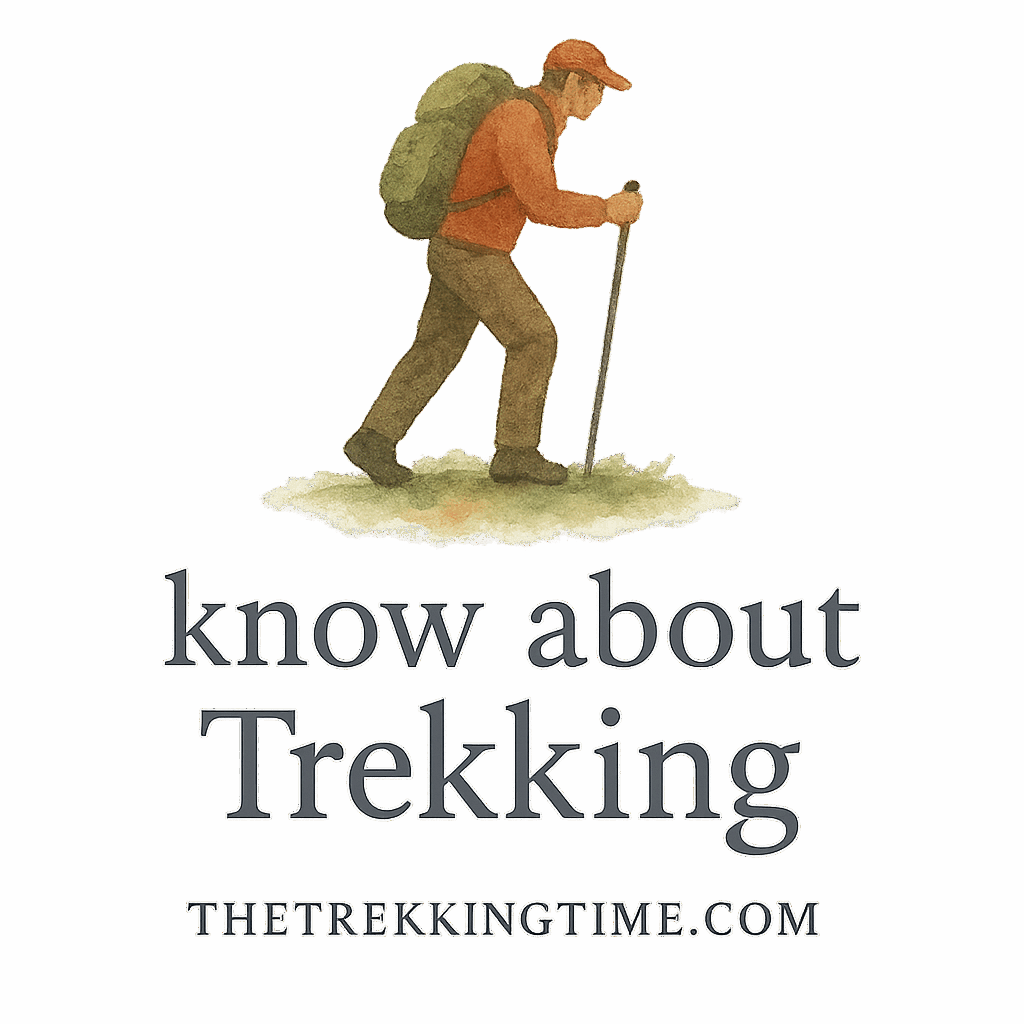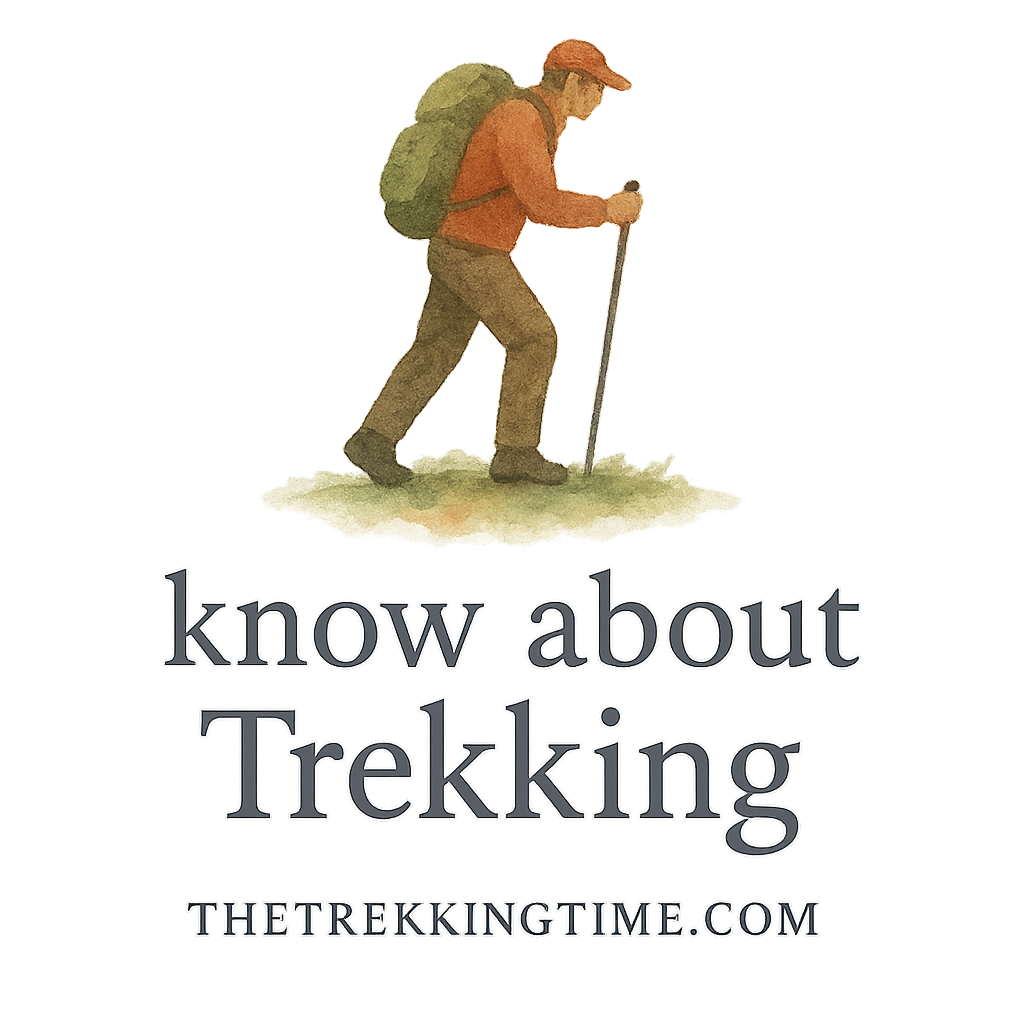Introduction: The Power of Trekking Alone
Ever wondered what it’s like to hike alone through mountain trails with just your backpack and your thoughts? Solo trekking isn’t just a physical journey—it’s a profound adventure inward. Whether you’re wandering the Himalayas or exploring your local trails, going solo can be a life-altering experience.
Let’s dive into the 10 benefits of solo trekking for personal growth, and see why it’s one of the most transformative activities you can do for yourself.
Looking to start trekking? Check out the Trekking Basics guide to get equipped.
1. Builds Unshakable Confidence
Overcoming Obstacles Without Help
When you’re out there alone, there’s no one to lean on but yourself. Lost your way? You figure it out. Blister on your foot? You manage it. These small wins stack up, boosting your belief in your ability to handle whatever life throws your way.
Learning to Trust Yourself
Solo trekking teaches you to trust your judgment. Every turn you take, every step you make—it’s your decision. That internal compass sharpens, and with it, your confidence soars.
2. Encourages Deep Self-Reflection
The Solitude That Sparks Insight
When was the last time you sat with your thoughts—really sat with them—without distractions? Solo trekking gives you that space. Away from social media and small talk, you get to ask yourself the big questions.
Nature as a Mirror to Your Inner World
There’s something about vast mountains and quiet valleys that makes you think deeply. Your thoughts echo back at you, helping you better understand who you are and what matters most.
Read more on mental wellness benefits.
3. Enhances Mental Resilience
Navigating Emotional Highs and Lows
Trekking alone isn’t always fun. Some days are tough—maybe you’re cold, tired, or just mentally drained. But pushing through those low moments builds grit. You realize you’re tougher than you thought.
Handling Fear, Doubt, and Discomfort
There will be moments when you’re scared—like hearing a twig snap at night. But facing and overcoming those fears trains your mind to remain calm in chaos.
Discover more on trekking safety.

4. Strengthens Problem-Solving Skills
Real-Time Decisions in the Wild
What do you do when your water filter breaks or a trail is washed out? You adapt. Solo trekking forces you to problem-solve on the go—skills that translate well into everyday life.
Thinking on Your Feet (Literally)
You don’t have time to overanalyze. You learn to assess, act, and move—quickly and smartly.
5. Increases Self-Reliance and Independence
Managing Your Own Trekking Logistics
From route planning to gear packing, it’s all on you. You become your own guide, navigator, medic, and chef.
For help with prep, visit the Trekking Gear & Packing guide.
Gaining Mastery Over Your Journey
This kind of ownership builds independence. You’re not just following someone else—you’re blazing your own trail.
6. Unlocks New Perspectives on Life
Escaping the Noise of Daily Routine
Routine can be numbing. Solo trekking pulls you out of that cycle. Time alone in nature helps you see things from a new angle, often revealing what’s truly important.
7. Connects You with Nature on a Deeper Level
The Mind-Body-Earth Connection
When you trek alone, you start noticing everything—the rustling leaves, chirping birds, even your heartbeat. You feel connected to the earth in ways that go beyond words.
Heightened Sensory Awareness
Without conversation, your senses take the front seat. You hear more, see more, feel more. It’s mindfulness, in motion.
Explore more about outdoor connection.
8. Improves Physical and Mental Health
Fitness Without the Gym
Trekking is one of the best full-body workouts. You’re burning calories, building endurance, and strengthening muscles—all without lifting a single dumbbell.
Learn more on trekking fitness prep.
Mental Clarity and Mood Boosting
Nature is nature’s best medicine. Fresh air, sunshine, and the rhythmic movement of walking are known to improve mood and reduce anxiety.
See how trekking improves health.
9. Builds Healthy Habits and Discipline
The Daily Trekking Routine
Waking up early, packing up, walking for hours, setting up camp—it’s a discipline. And it spills into the rest of your life: waking up on time, eating better, staying organized.
Staying Committed Without Accountability
No one’s watching. That’s the beauty—and the challenge. Solo trekking demands self-discipline, which fosters long-lasting positive habits.
Dive deeper into healthy hiking habits.
10. Fosters a Greater Sense of Purpose
Lessons That Stay With You Forever
Each trek tells a story. Every challenge faced alone adds a chapter to your personal growth. You return home with more than photos—you return with purpose.
Your Story, Your Legacy
You’ll inspire others—not just by the distance you walked, but by the inner distance you traveled. You become the author of your own legend.
Read stories and benefits of trekking.
Final Thoughts: You’re Stronger Than You Think
Solo trekking isn’t for everyone, but if you’re seeking personal growth, it’s one of the rawest, most honest paths you can take. It challenges your body, mind, and soul—and rewards you with clarity, confidence, and a deeper connection to yourself and the world.
So go ahead—lace up those boots, pack light, and walk toward yourself.
Want to explore your first destination? Check out Trekking Destinations to get inspired.
FAQs About Solo Trekking for Personal Growth
1. Is solo trekking safe?
Yes, with proper planning, research, and safety measures. Refer to Trekking Safety Tips for essential guidelines.
2. How do I choose a trail for solo trekking?
Start with well-marked trails in regions known for safety. Check out Trekking Routes.
3. What gear do I need for a solo trek?
Essentials include navigation tools, shelter, food, and emergency supplies. Use this gear packing guide as a checklist.
4. How does solo trekking impact mental health?
It promotes clarity, reduces stress, and boosts self-awareness. Explore more on mental health benefits.
5. Is solo trekking physically demanding?
Yes, but it’s scalable. You can train using our trekking fitness prep.
6. Are there any etiquette rules for solo hikers?
Absolutely. Respect trails, wildlife, and fellow hikers. Learn about proper hiking etiquette.
7. Can solo trekking help with goal setting?
Definitely. It allows reflection and aligns you with your purpose—key ingredients in personal goal clarity.


